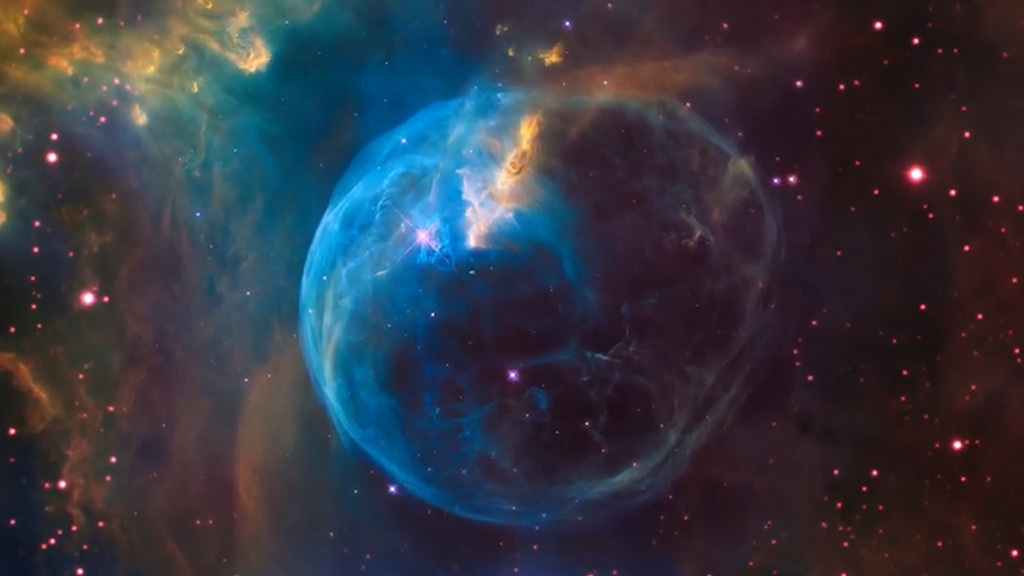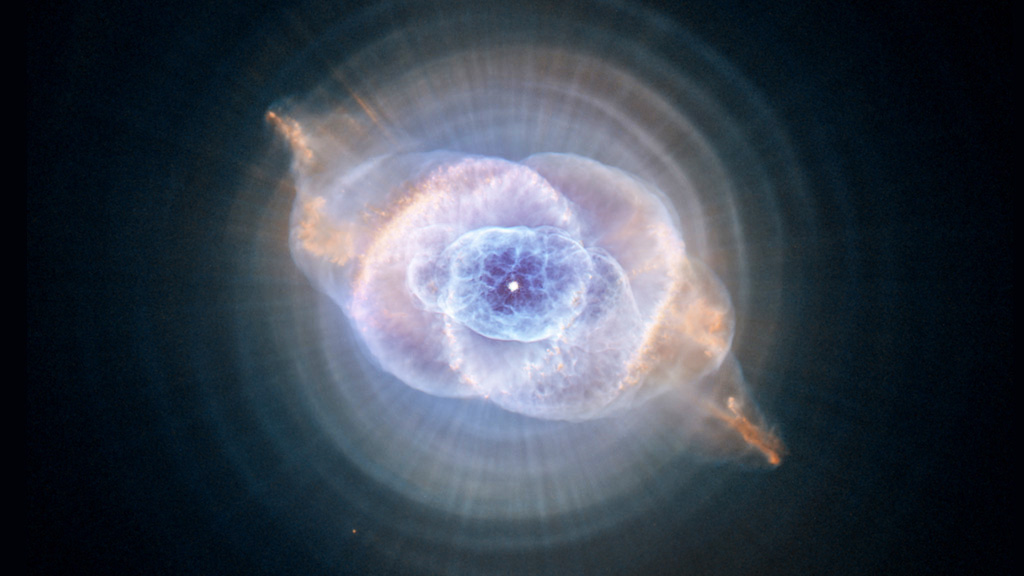Missing Dark Matter

A bizarre, ghostly galaxy lacks dark matter.
Galaxies and dark matter go together like peanut butter and jelly. You usually don’t find one without the other. But one recently discovered galaxy called NGC 1052-DF2 is nearly entirely lacking in dark matter. Researchers were astonished when they viewed its image captured by NASA’s Hubble Space Telescope. Dark matter is an invisible substance that astronomers believe plays an important role in the formation of galaxies and is thought to comprise 85% of the universe’s mass. This discovery not only challenges the ideas of how galaxies form, but also provides evidence that dark matter is real. It shows that dark matter is not always coupled with regular matter in galaxies and that it has its own separate existence. In addition to lacking dark matter, galaxy NGC 1052-DF2 is an anomaly because you can see straight through it. This is called an ultra-diffuse galaxy because it has an extremely low density. As a result of these findings, a team of researchers are hunting for more dark-matter deficient galaxies to better understand the nature of dark matter and the formation of galaxies. Watch the video to learn more.
Learn more about dark matter and why the discovery of galaxy NGC 1052-DF2 puzzled astronomers.

The ghostly galaxy NGC 1052-DF2 is about 62 million light-years away from Earth and about 10 billion years old.

Using the speed of 10 bright star clusters, researchers calculated the galaxy's mass, which is entirely accounted for by visible stars.
For More Information
See NASA.gov
Credits
Please give credit for this item to:
NASA's Scientific Visualization Studio
Image Credits: NASA, ESA, and P. van Dokkum (Yale University)
-
Scientist
- Pieter van Dokkum (Yale University)
-
Producers
- Donna Weaver (STScI)
- Ray Villard (STScI)
- Katrina Jackson (USRA)
-
Writers
- Ray Villard (STScI)
- Donna Weaver (STScI)
- Hannah Lobell (Experiential Learning Program, UMD)
Release date
This page was originally published on Monday, November 18, 2019.
This page was last updated on Wednesday, May 3, 2023 at 1:45 PM EDT.





![Watch this video on the NASA Goddard YouTube channel.Music credit: "Reborn" by Maksim Tyutmanov [PRS] and Victoria Beits [PRS]; Atmosphere Music Ltd PRS; Score Addiction; Killer Tracks Production Music](/vis/a010000/a012900/a012907/hubble_galaxy_without_dark_matter_thumbnail.png)